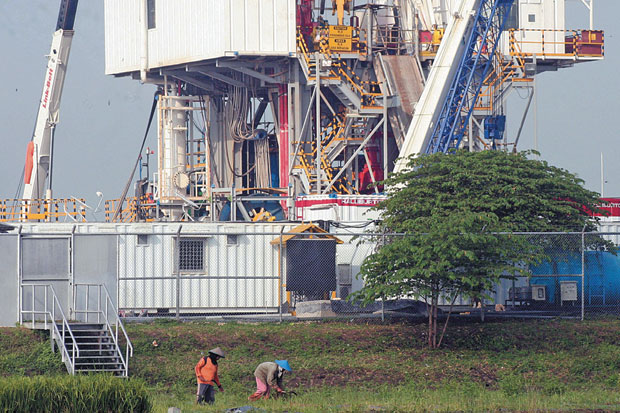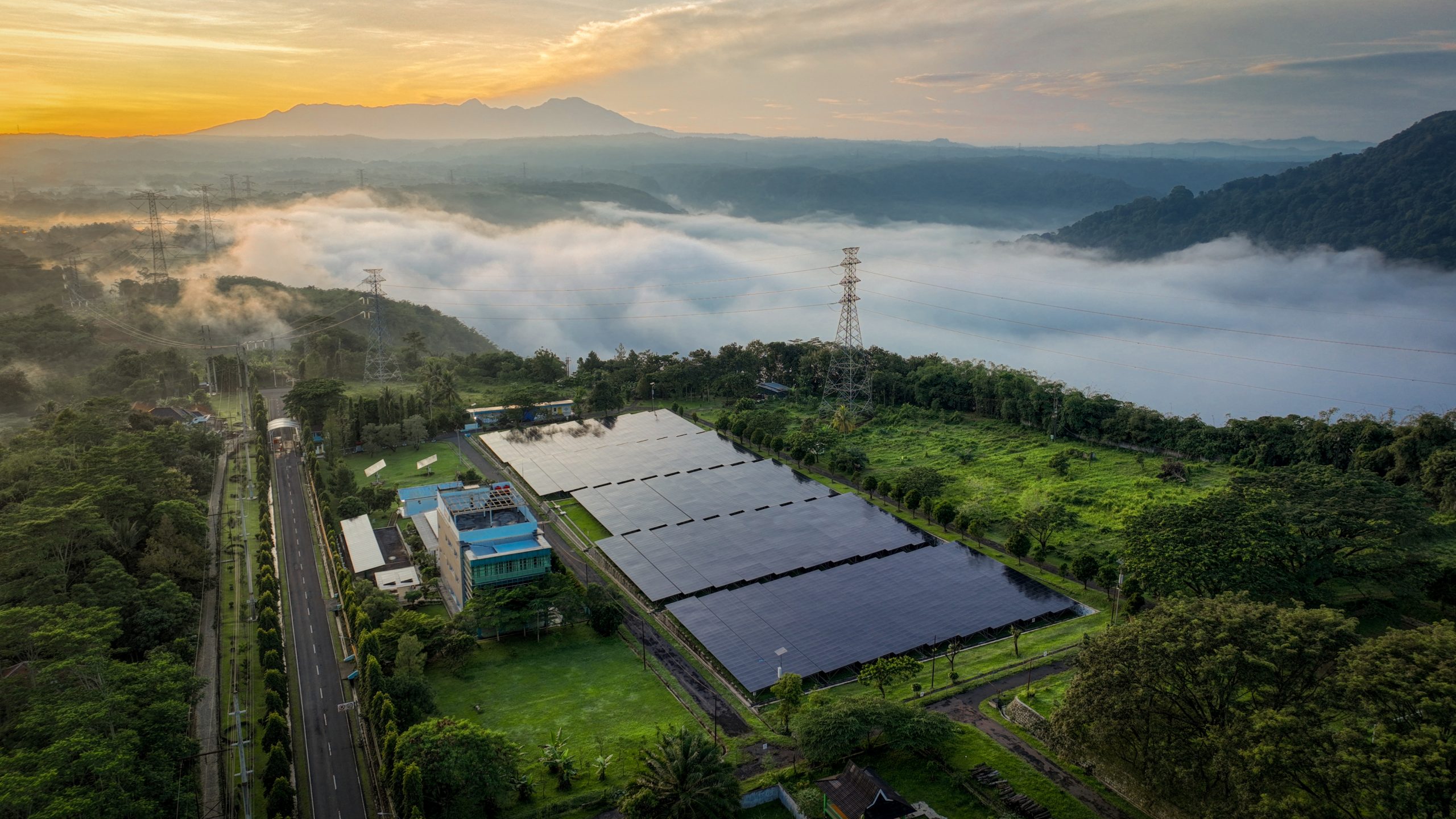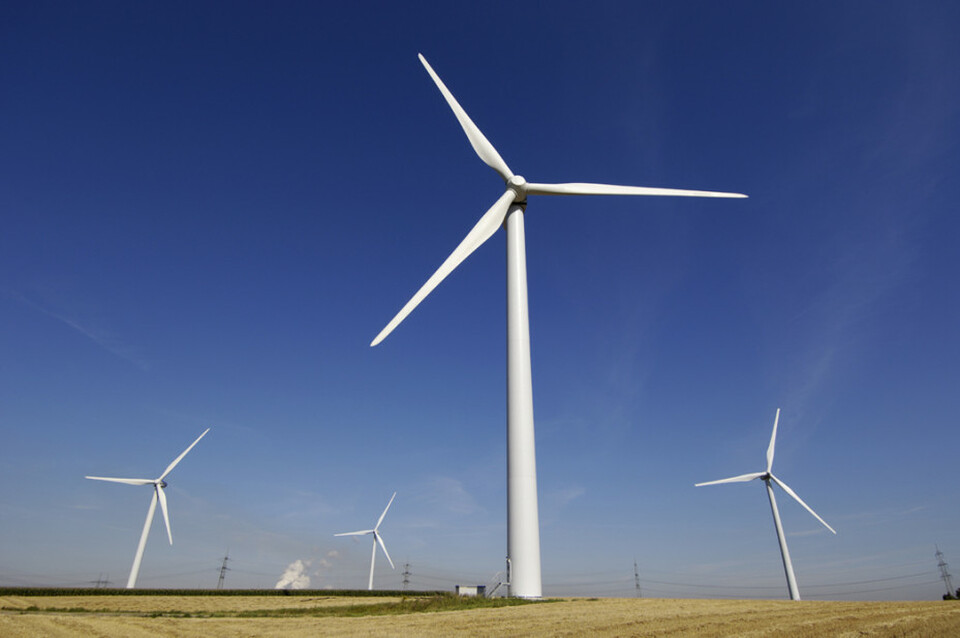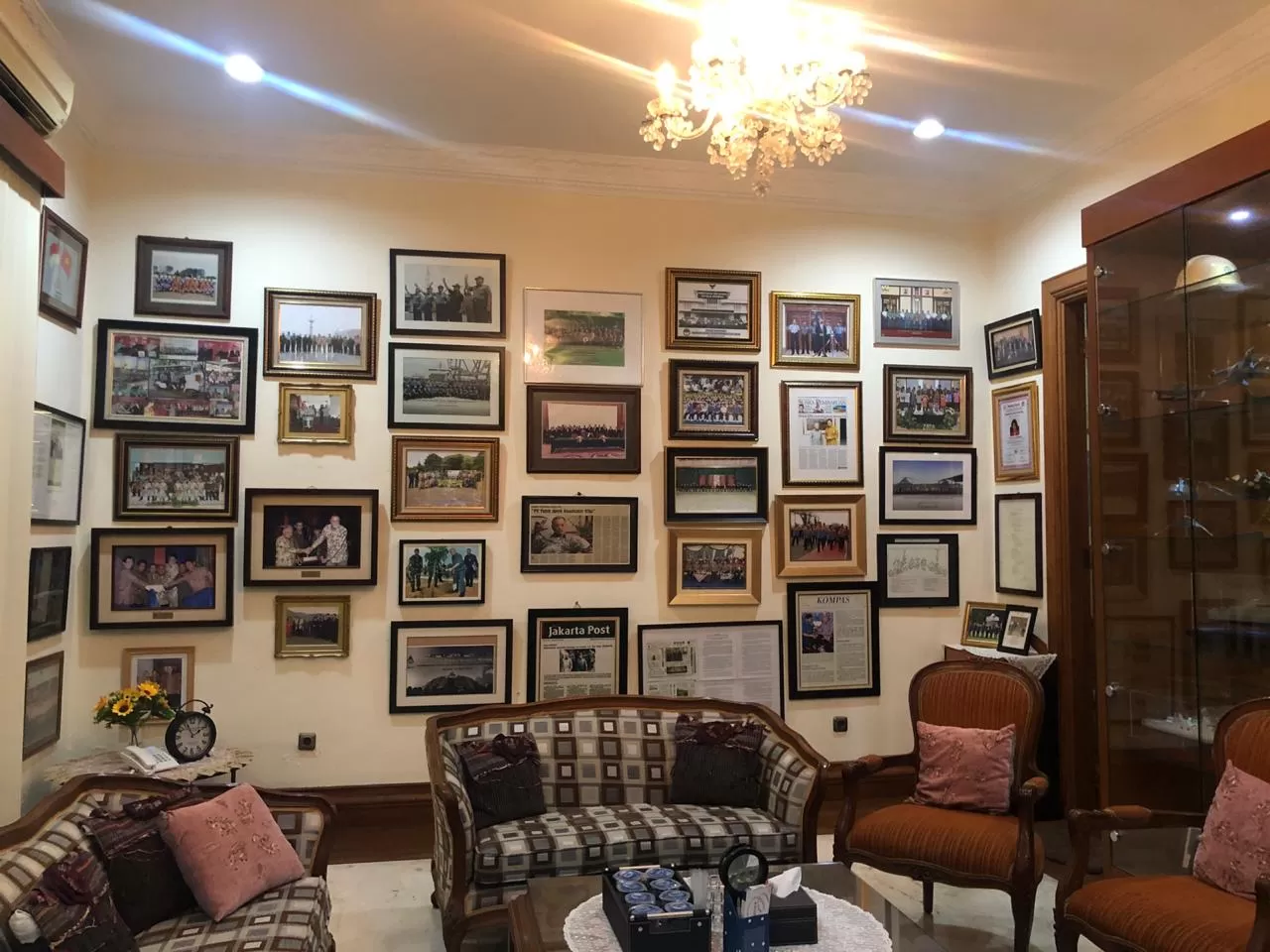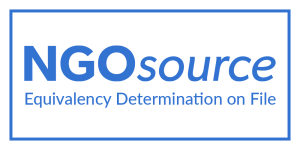Figure 1. The first panel session with Mrs. Emma Rachmawati (Climate Changes Mitigation Director of Ministry of Environment and Forestry), Mrs. Soma Dutta (Coordinator Women’s Economic Empowerment Program of ENERGIA), Mrs. Janske van Ejick (Sustainable Business Practices Consultant of Enclude), Mrs. Ratnawanti Muyanto (Researcher of HIVOS), and Mrs. Maria Hartiningsih (Kompas) (Left to right).
The Policy Dialogue on “Opportunities for Economic Empowerment of Women in Low Carbon Economy Transition” was hosted by Millennium Challenge Account – Indonesia (MCA-I) on Thursday, March 15, 2018, and taken place at Pullman Hotel, Jakarta.
The aims of this dialogue were to (a) present the result of Policy Study in Economic Empowerment of Women in Low-Carbon, Green Prosperity Project by MCA-I; (b) sharing international and national good practice experiences related to economic empowerment of women in low-carbon emission sectors as lessons learned and policy recommendations; and (c) discuss future steps with stakeholders in the women’s economic empowerment in low-carbon economic activities.
This dialogue was divided into two-panel discussion sessions. The first panel session was moderated by Mrs. Maria Hartiningsih (Kompas). The first speaker was Mrs. Ratnawanti Muyanto (Researcher of HIVOS) presented the result of the study which shows that multidimensional women empowerment, like Green Prosperity Project, developed by MCA-I has significantly created positive economic benefits to the community. Followed by Mrs. Soma Dutta (Coordinator Women’s Economic Empowerment Program of ENERGIA), she highlighted what should be the government priority to move forward to achieved gender mainstreaming in energy access, which are (a) build gender-responsive energy sector policy through evidence-based policy advocacy; (b) invest in decentralized energy technologies; (c) access to finance is a must; (d) scale-up women’s energy entrepreneurship; and (e) include sex-disaggregated data collection and analysis. Meanwhile, Mrs. Janske van Ejick (Sustainable Business Practices Consultant of Enclude) delivered on how gender mainstreaming is important for sustainable natural resource management nowadays because women play a key role in sustainable resource management. The last speaker was Mrs. Emma Rachmawati (Climate Changes Mitigation Director of Ministry of Environment and Forestry) who emphasized that women have potential as community leaders and change makers in low-carbon future.
After the lunch break, the second-panel session was moderated by Mrs. Yanti Lascana (HIVOS). The panels for this session were Mrs. Woro Srihastuti Sulistyanigrum (Director of Family, Women, Children, Youth, and Sports of Indonesian Ministry of National Development Planning), Mrs. Sri Asih Rohmani (Ministry of Agriculture), Mrs. Yuni Kurniati (Head of Social and Economy of Development Planning Agency at Sub-National Level), and Mrs. Ciput (Ministry of Women Empowerment and Child Protection). The conclusion of this discussion is that Indonesia has already implemented the gender mainstreaming policy in some ministries. However, the government still have to improve integration on the gender mainstreaming in the low-carbon economy. The event ended with a keynote speech delivered by Prof. Dr. Sulistyowati Irianto (Universitas Indonesia). She emphasized that an interdisciplinary approach is needed to have fairness access in women empowerment. Moreover, the policy framework should be based on science and multidisciplinary research results that can respond to future community needs, especially for poverty alleviation of women.
